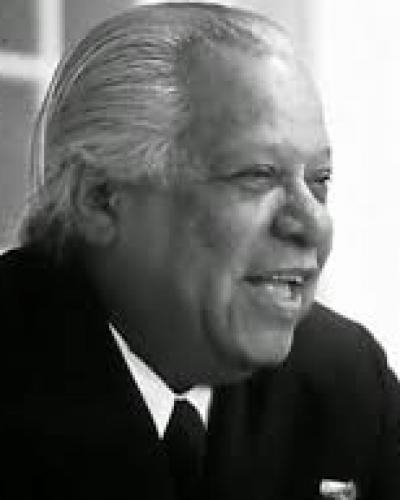
Havana, July 12 (RHC)-- Cubans paid tribute to National Poet Nicolás Guillen on the 119th anniversary of his birth this past July 10th.
Since last January, the Foundation that bears the name of the National Literature Prize laureate develops a series of activities on social networks, in coordination with the Ministry of Culture and the National Association of Writers and Artists (UNEAC) aimed at highlighting the legacy of Guillen.
The program included panel discussions, book launchings, exhibitions and audiovisual presentations, as well as activities on the 70th anniversary of the text 'Elegía a Jesús Menéndez’ by Nicolás Guillen, coinciding with the 110th birthday anniversary this year of the labor leader and others marking 90 years of one of Guillen’s most iconic works Sóngoro Cosongo.
Nicolas Guillen melded the dialect and speech patterns of Cuban blacks with African folklore and rhythms into a movement called poesia negra (black poetry), making him one of Latin America’s best-known writers.
He was as much a political activist as a poet. In 1937, he travelled to Spain as a delegate to the Second International Congress of Writers in Defense of Culture. In an address before the congress he condemned fascism and reaffirmed his Black roots. After the 1959 Revolution, Nicolás Guillen was tasked with founding the Association of Writers and Artists (UNEAC), of which he became the founding president in 1961.
Over the next two decades, he wrote and published a several collections of poetry, including “Tengo” (1964), “El gran Zoo” (1967), “La rueda dentada,” and “El diario que a diario” (1972), and “Sol de Domingo” (1982). Guillen died in Havana in 1989 at the age of 87.
His works have been translated into more than 25 languages.
After his death, in 1991 the Nicolas Guillen Foundation was established in Cuba to contribute to the preservation, study and promotion of his vast literary, cultural and revolutionary legacy.

